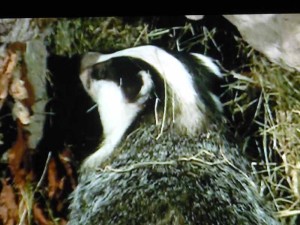The Wildlife Trust has written to Members of Parliament asking them to oppose a licensed badger cull in England.
 For over 15 years the Wildlife Trust for Birmingham and the Black Country has been raising concerns about badger culling, and urging proper investment in alternatives such as vaccination, better biosecurity and accurate testing procedures. These are the most effective means to tackle bovine TB and the best options for badgers and for UK farmers.
For over 15 years the Wildlife Trust for Birmingham and the Black Country has been raising concerns about badger culling, and urging proper investment in alternatives such as vaccination, better biosecurity and accurate testing procedures. These are the most effective means to tackle bovine TB and the best options for badgers and for UK farmers.
Lord Krebs, Professor Bourne and other leading scientific experts have concluded that a cull will not be effective in tackling bovine TB and may make matters worse due to the
‘perturbation effect’.
“Farmers who experience the trauma of a bovine Tb outbreak on their farms understandably demand that something must be done, and it is not surprising that some feel that killing badgers, who can also carry the disease, is an obvious solution. But there are now many years of experiments, trials and other evidence that culling is not an effective solution, and that concerted effort to control bTb in other ways is the real answer” says Neil Wyatt, Wildlife Trust Chief Executive. “The real shame is that these other control measures could have been in place a decade ago, if successive Governments had followed the best scientific advice.
Let’s hope the current Government has the courage to do what’s right, rather than simply appeasing the “shoot to kill” lobby”.
The injectable badger vaccine is already in use by landowners such as the Gloucestershire Wildlife Trust and The National Trust. A cattle TB vaccine could be in use by the end of 2012 if not prevented by EU legislation. Instead of proceeding with an ineffective cull of a native mammal, we are pressing the Government to pursue the following as a matter of priority:
• Support landowners to use the injectable badger vaccine;
• Secure change to EU legislation to permit a cattle vaccine;
• Continue to develop an oral vaccine for badgers.
For briefings on Badgers and Bovine Tb and on Tb vaccination, please visit: http://www.bbcwildlife.org.uk/news


